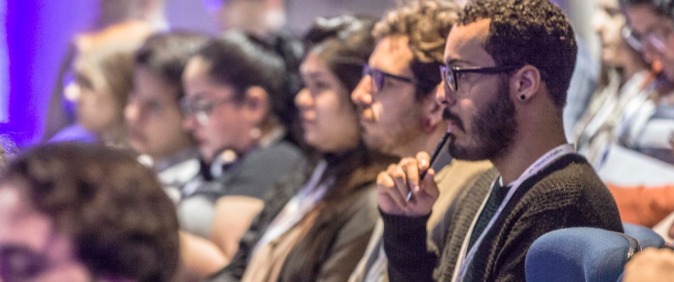- About
- Topics
- Picks
- Audio
- Story
- In-Depth
- Opinion
- News
- Donate
- Signup for our newsletterOur Editors' Best Picks.Send
Read, Debate: Engage.
| August 08, 2018 | |
|---|---|
| topic: | Freedom of Expression |
| tags: | #fake news, #World Press Freedom Index, #Egypt |
| located: | Egypt |
| by: | Bob Koigi |
The prosecution therefore opened up the hotline to the public to report via WhatsApp, text or instant messaging, any messages they deemed to be inciting, a threat to public security or one that could cause harm to the public interest with the target being both traditional and new media. The judiciary has also been tasked with monitoring websites and social media accounts and prosecuting any ‘peddlers of fictitious news'.
“A set of mobile telephone numbers are assigned to receive complaints on the instant messaging on WhatsApp application and by SMS; The sent messages should contain all information available on the reported fake news”, the statement from the prosecution read in part.
And in what the government says is an attempt to protect the data and privacy of its citizens, it has announced plans to launch an Egyptian social media platform that rivals Facebook.
But the avalanche of directives has been interpreted by media and civil society groups as a growing number of actions the government is instituting to curtail freedom of expression and threaten journalist with President Abdel Sisi accused of using state institutions to terrorise dissident voices.
The media is facing a tough time in the country with the new directive. Dozens of journalists have been arrested with hundreds of websites critical of the government blocked. A Freedom House report indicates that over 400 media and NGO websites have been closed so far.
In one of the highly publicised cases, the BBC carried a story of 23-year-old A. Adib Zubeida who disappeared in what the broadcaster indicated was the growing list of forced disappearances in the country. Her mother told the BBC that the police had kidnapped her. Days later Zubeida would appear in a local TV station to dispute the BBC story. The government was livid, accusing the UK broadcaster and western nations of meddling in its affairs and using fake news to achieve political motives. The government termed the BBC report as having been flagrantly fraught with lies and innuendos and accused BBC of "alarming visible non-neutrality and blatant violation of media standards that the BBC is supposed to be on top of media corporations adhering to.” BBC responded saying it stood with the story and was guided by the basic tenets of journalism while pursuing it.
In another incident, the New York Times carried a story dubbed “Tapes Reveal Egyptian Leaders’ Tacit Acceptance of Jerusalem Move”. The article pointed to a high profiled Egyptian intelligence officer who had meetings with four influential TV hosts urging them to promote the US decision to make Jerusalem the Israel capital.
“The Times’ report contains allegations regarding Egypt’s position on the Jerusalem issue mentioned in the so-called 'audio recordings'. It is inappropriate for The New York Times, a reputable newspaper, to publish such allegations. Egypt’s positions on international issues are not derived from alleged leaks from an anonymous source. Rather, Egypt’s positions are conveyed by the President, the Minister of Foreign Affairs and in official statements as well”, the government responded in a heavily worded statement.
The all-out war on media as occasioned by the recent attacks and decrees is has been thinning the democratic space in a country ranked as 161 out of 180 in the 2017 RSF World Press Freedom Index.
“After arresting journalists, blocking online media and bringing traditional media outlets under its control, President Sisi’s regime is now inciting the public to be on the watch for supposedly fake news. This new measure by the Egyptian authorities establishes a dangerous climate of denunciation and tightens the gag on media that have already been reduced to silence,” read a statement from Reporters Sans Frontières.
There is now growing fear of even more suppressions in days to come with parliament now having approved new amendments to the anti-cybercrime law that has given government sweeping powers to carry out social media surveillance to crack down on fake news and recommended stringent penalties including death and cancelling of licenses to those in contravention of the law.
By copying the embed code below, you agree to adhere to our republishing guidelines.
